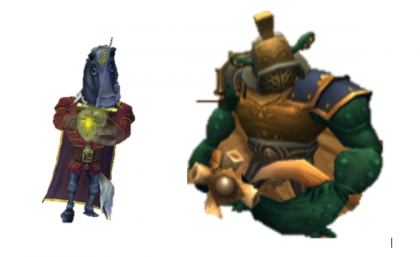A Tale of Two Childrens’ Card Games: Wiz vs Pirate PvP
I’m sure a lot of people reading this site’s articles are Wizard101 fans. My guess is that a lot of you play and enjoy Wizard101 PvP as well. I’m here to give a sales pitch of sorts: You should come try Pirate101 and its PvP! You may think this is ridiculous, believing that Pirate is by far the inferior game and has a playerbase full of people who do nothing but ratio the official Pirate twitter account asking for story updates (to be far, the story update part isn’t wrong, but hey, waiting 3 years for a single level update is a bit insane).
I held this belief at one point as well. I was a die-hard Wizard101 PvP, reaching nearly 1300 rank on my max death in early to mid 3rd age. I was blocked by many a Pirate101 fan for my baseless and vocal hatred of the game. I eventually gave the game a try and loved it. I’m not writing this article to convince anyone to jump ship (pun intended). I’m going to outline the main differences between the two games’ state of PvP and explain why these differences make me prefer Pirate to Wizard. I’m going to do this on a backdrop of a third card game: Magic the Gathering. Two of MtG’s most popular, non-rotating competitive formats provide an uncanny mirror to the current states of Wizard and Pirate PvP at max level.
Legacy and Modern: A Brief Primer
Modern
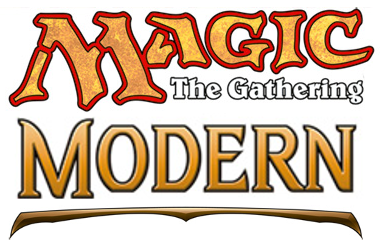
MtG has two very popular ‘eternal’ (non-rotating) competitive formats, entitled Modern and Legacy. Modern is described by many players to be ‘hyper-linear’, ‘uninteractive’, or a ‘drag race’. What do these terms mean? In the context of games like these, linearity refers to decks or builds that consistently strive to make the same plays at the same point of a game. They have a single game plan, and regardless of what their opponent is doing, they remain focused on executing this game plan.
Interactivity is on the other end of the spectrum. Interactive builds do care about what an opponent is doing. Interactive builds will, rather than directly advance their own game plan (ie: killing the opponent) will interact with their opponent’s game plan by responding to or removing threats in one way or another. These responses may advance their game plan somewhat, but the primary focus of the responses is the interaction.
Modern being a ‘drag race’ is exactly what it sounds like. Like the sport of drag racing, it is lighting fast, with many matches ending in a few rounds. This is because the offensive threats are significantly better than the defensive answers. This isn’t to say defensive builds don’t exist, they do, but they struggle to survive the lightning fast builds they often see opposite them. Furthermore, Modern is wildly popular (much moreso than Legacy). The fast, powerful decks are incredibly fun to watch and pilot, despite the general lack of interactivity (which isn’t a bad thing to some people).

Legacy
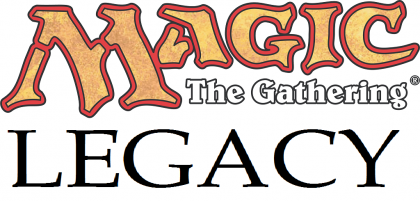
What about Legacy? Legacy is Modern’s less popular, slower, and more interactive sibling. The builds found in Legacy are largely non-linear. Due to the high power level of opposing threats and answers, one is forced to constantly adapt to what the opponent is doing. They generally can’t get a few high-power threats out and ride them to victory (with a few exceptions). Thus, they are greatly interactive. Almost any unanswered threat is gg, so responding to an opponent’s threat is quintessential. This interactivity means the format is far from a drag race. Many builds are fairly slow, and matches between them may take 10, 20, or even more rounds to complete. Why is the speed of Legacy so much slower? The answers to threats are equally strong as the threats themselves. Many of the powerful answers found in Legacy cannot be found in Modern. However, the threats in both formats are relatively equal in power level. Consequently, Modern is heavily skewed towards playing aggressive and powerful threats as quickly as possible and interacting only when that is not possible. Legacy maintains a balance between threat and answer.
Furthermore, Legacy is deemed by many to be a more skill-intensive format. It greatly rewards experience and knowledge of the metagame and due to the power of the threats, heavily punishes even small misplays. Since the format is slower and has a much larger card pool, being able to predict both your and your opponent’s future turns is key. In addition, there are many lines of play at any given moment. Do I play a threat? Do I hold permission effects in hand for when an opponent plays a threat? Do I remove an opponent’s on-board threat? In Modern, there are fewer lines of play (but still a lot). Unless an opponent’s threat is immediately game-ending, it’s generally better to advance your own board state. Modern’s speed also allows for many games that entirely determined by rng. There are some opening hands that simply cannot be beaten due to their ability to deploy massive threats early (too early). As mentioned earlier, Legacy is a much less popular format. It takes time to learn the complex lines of play found in many builds. Consequently, many players decide to focus on Modern, which generally has simpler lines of play. The decks of Legacy are also less ‘flashy.’ They’re generally designed to get lightning-fast, turn 3-4 kills (again, with some notable exceptions). This may be much less entertaining for a viewer.
Wiz and Pirate
You may have seen some similarities between my depiction of the Modern format and Wizard101 PvP and between Legacy and Pirate101 PvP. I believe the current state of both games mirror Modern and Legacy, respectively. (disclaimer: I understand the similarities aren’t 1-for-1, just hear me out). So, keeping the differences between modern and legacy in mind, what are the main differences I see between Wiz and Pirate PvP (discounting the obvious card game vs board game dynamic)?
Threats vs Answers
This is the biggest difference between the two games and is the cause of many of the other differences. In Wizard101 the offensive threats are insanely strong. A ‘standard’ build nowadays will have well over 100% damage boost and nearly 40% base pierce. Shadow-enhanced spells, Shadow Shrike, and hyper-efficient dropped spells (Lore, Luminous, Rampage, etc.) complement these powerful offensive stats quite nicely. What do we have as answers? Standard shields are weak to shadow shrike and other methods of gaining increased pierce. Furthermore, the best shield breaking spells have built in utility, so shield spam is much less effective. Heals from non-angel builds are inefficient in the face of spells that do 2500+ damage for 4-6 pips. Longer-term protections like Brace or Fortify don’t do enough. Sure, a combination of ward pets and say, Brace provides a pretty good defensive cocoon. To be honest, these sort of matches were the most entertaining to watch. The participants couldn’t get carried to victory by hyper-efficient attacks.
Simply put, the ‘answers’ that are generally available for conventional builds are much weaker than the threats. The only way to efficiently answer threats is to embrace turtling strategies, like the (now-defunct) juju spam strat or Angel builds. (Note: I’m not suggesting that KI add ultra-oppressive defensive strats like juju spam back to the game, I’m merely noting that in current wiz PvP, threats > answers)
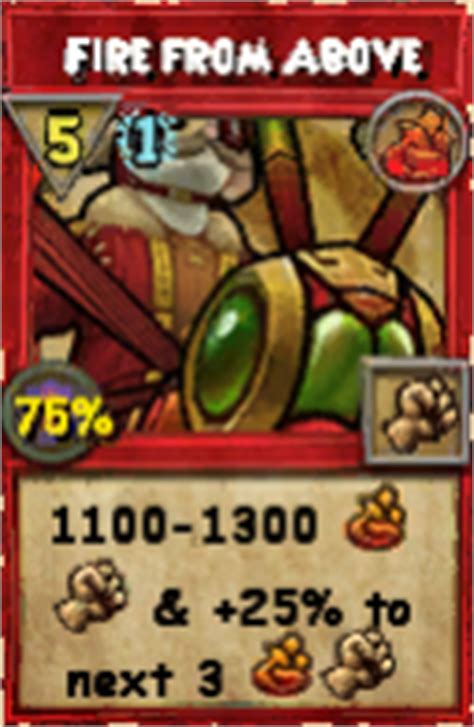

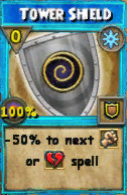
Wizard101 features threats that are much more potent than answers, leading to a hyperaggresive metagame
In Pirate101, threats and answers are mostly balanced. For instance, the only way to buff weapon power directly and efficiently is through hides, which are temporary in length and are broken after doing 1 attack. Unlike stat-based damage buffs in wiz, Pirate players don’t have their damage output effectively doubled by their stats. (Sure, there’s that whole Old Scratch nastiness, but he gets banned in any sort of competitive PvP)
There are also a variety of threats found in Pirate101 PvP. You can use buffs to increase your own stats for multiple rounds, debuffs to weaken your opponents’ stats for an equal amount of time. Even direct attack spells are varied! You can attack with melee attacks, gunshots, bombs, and bursts of magic. All of these do different things and must be responded to in different ways. This allows for a variety of playstyles for each class. In wiz, the best threats do the same thing: they’re super efficient damage dealing spells that generally have relevant aftereffects.
Pirate PvP also has fantastic answers to threats. Since the game is played on a board, there’s the option of simply running away to avoid damage. Furthermore, the shields in Pirate last multiple rounds and cannot be constantly broken. Heals are powerful enough to match or nearly match an opponent’s damage output, if used properly. All of this means that strats that are aggressive, defensive, and everything in between are viable. In addition, you are allowed further customization in the companions and gearsets you bring to a match. Each class has multiple viable builds, and you will rarely face the same exact build consistently.
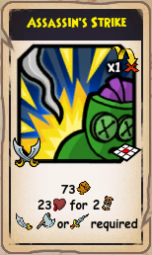

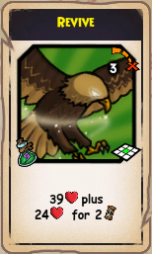
Threats and answers are equally potent in Pirate101, leading to a more balanced metagame.
Finally, each power obtained from gear or class trainers can only be used once in a duel. For instance, if an opponent uses a shield, you would be unwise to attack through it with a powerful attack, as that attack would be used up permanently that duel. This leads to the most important facet of Pirate101 PvP: the resource war. Since resources are finite, answering your opponents resources (or threats) efficiently will allow you to get ahead and win the duel in the long run. This also means that players can’t turtle for near-indefinite periods of time. It also means that you can’t just spam hits brainlessly; you’ll run out very quickly, and since your opponent’s defensive answers are of a similar caliber, they will withstand the onslaught and be able to execute an effective counterpunch.
tldr: Pirate’s threats and answers are generally equally balanced and powers are only used once per fight. This allows a variety of strategies, ranging from fast to slow, to shine. Companions and gearsets are also greatly varied, meaning you will consistently play with and against different builds. In wiz, threats are significantly better than answers, meaning only ultra-defensive strategies can answer them effectively. In addition, most builds are largely homogeneous, featuring high attack and pierce, maximized secondary statistics, and solid resist, particularly to ‘meta’ schools.
Interactivity and Linearity
As mentioned before, Wizard’s threats are vastly stronger than their answers, as a general rule. This leads to PvP that is heavily skewed towards fast and aggressive builds. Furthermore, since the answers are weaker than the threats themselves, it’s often better to apply pressure through threats than interact. This is an uncanny mirror to MtG’s Modern. You may ask, what about utility spells like Lore and Weaver? They interact with the opponent, do they not? They do, but they also serve to apply pressure, thereby advancing your gameplan. If there was a spell that but a -20% weakness and a -35% mantle, I can’t imagine it would see the kind of play loremaster does. Lore isn’t good because of its aftereffects alone, it’s good because it applies insane pressure with those aftereffects on top.
I can remember many a match when I did Wizard101 PvP (at the 110 level cap, overlord+ rank) where I would just cast a bunch of blades, use a myth banshee or shrike, then one hit an opponent. I didn’t care what the opponent was doing for the most part. I’d shield or stun block if there was an immediate threat of game-ending or near game-ending damage, but my primary focus was setting up a kill. It really didn’t matter what my opponent did. The threats I could apply (shrike, shield breakers, DoT’s) were better than whatever they did to answer it. (I also remember quite a few matches where my opponents did the same thing. They could set up buffs, efficiently break my shields, and kill me with a hyper efficient shadow hit) This means that Wizard101 PvP, at max level, is largely uninteractive and linear.
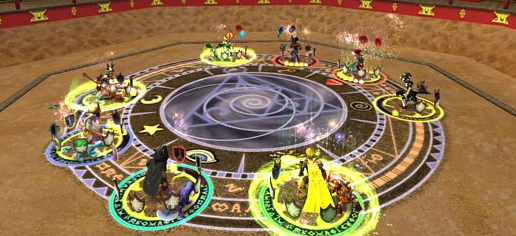
What about Pirate PvP? As mentioned before, threats and answers are on an equal playing field. Unanswered threats, however, are powerful enough to be game-ending. This means that interaction is a must. You have to adapt to what an opponent is doing. Since there is a balance between threats an answers, it’s often optimal to play a mix of offensive and defensive abilities, balanced to your liking. This mirrors MtG’s legacy format.
For instance, if I’m a buccaneer (an aggressive, melee class) facing a musketeer (a more defensive, ranged class) and I see that my opponent is using bombs and traps to block my way of attack. I’m not going to rush in anyways, despite that being my ideal gameplan. I’ll instead time out their buffs, bombs, and traps, or force them to rush me before their buffs run out up. I’ve interacted with my opponents gameplan by deciding to abandon a linear and aggressive plan of attack.
Another example: I’m a swashbuckler, facing a buccaneer. My opponent has used accuracy and strength buffs, and will therefore be able to slaughter me and my team. I decide to use a Vicious Charge power to reduce my opponent’s accuracy and lower their damage potential. This is essentially wasting their buffs, and contributes towards putting me ahead in the resource war. I also have another option. I could put a unit with Hold the Line up front, which will immobilize them upon approach. In both instances, I was interacting with the opponent. My interaction wasn’t directly advancing my game plan (my vicious charge would be doing minimal damage and moving one unit to the front isn’t aggressive at all). Compare this to Wizard’s best interactive abilities: they do efficient damage, while being somewhat disruptive.
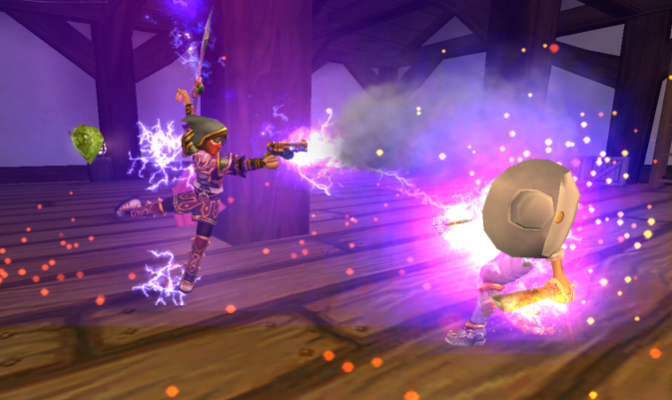
Essentially, Pirate PvP is a game of threat and response. You take turns responding to, and interacting with an opponent’s threats. The player that gets a threat to ‘stick’ (aka, getting full value from it) will win the match, generally speaking. This once again eerily mimics MtG’s legacy format.
tldr: Wiz is largely linear and uninteractive, as threats are significantly better than answers. Continuously deploying threats and basically ignoring the opponent is often effective. Pirate forces interactivity. Although unanswered threats are game winning, answers are on equal footing with threats, so interacting is a must. This creates a sort of ‘dance’ between threats and answers until someone gets and unanswered threat
RNG
Matches in Wizard101 are blisteringly fast, due to how powerful the best attacks are. In Pirate101, the best attacks are generally counterable by the variety of easily accessible protection abilities. This makes for slower matches. What does this have to do with RNG? As I mentioned earlier, the Modern format in MtG often has decks with lucky opening hands that are just too fast to beat. Losing to this doesn’t say anything about the skill of the losing player, they just got unlucky.
The same is true in Wizard101. Sometimes your opponent will get a string of shadow pips, get good draws, and just blow you out with shadow enhanced nonsense. It doesn’t say anything about you, per se. You just lost to fickle RNG. The same happened in the past with critical and critical block. I clearly remember the last match of a string of frustratingly unluck matches that made me abandon Wiz back in 2016. I was one turn away from a game ending combo, and my balance opponent had a fistful of pips, no shadows. I had a single tower up and was at 5k health. My opponent crit a loremaster through my 88% critical block to bring me down ~1000 health. I powered the last blade I would need to win the game the following round with a myth banshee-> shadow hit combo. My opponent got a shadow pip. I wasn’t worried, as they need to crit and land both heads of the incoming Gaze of Fate to win the game. That seemed highly unlikely to me. If it wasn’t obvious, they landed both heads and I died.

I’ve done PvP in Pirate for just over 2 years. I’ve never had matches anywhere near as frustrating as the aforementioned match. Since each match is much slower paced, and the answers that are available are as good as the threats, you will very rarely just get blown out due to a super lucky spawn or opening hand. Although there are many opportunities for RNG to slightly affect a match at any given moment, you can easily overcome it through excellent play.
This brings me to my next point: Pirate PvP heavily rewards skill, experience, and meta knowledge, much like the Legacy format. If you were unaware, every Pirate PvP match requires that you control your character, as well as 3 companions of your choosing (the closest comparison to Wiz would be henchmen, but they’re controllable and actually good). This means that from the time you select your companions to the moment the last unit on a team dies, you are constantly faced with a complex web of decisions. What companions are ideal in this matchup? Do I play aggressively, or defensively? Which of my units should attack, and if they do, what path of approach should they take, and who should they target? Should I run away to waste my opponent’s buffs? Can my opponent reach me? Can my opponent time out my buffs? This complex web of decisions creates a lot of differing lines of play. Learning Pirate PvP requires learning these different lines, both from you and opponents. Top players can take advantage of even a single mistake and use it to close out a match. Although this means the learning curve is difficult, the community is happy to help new players learn the ropes.
Once you figure things out, you will almost always feel that you control the outcome of a match, not RNG. I know that if I manage my resources effectively and anticipate and respond to my opponent’s moves well, I am almost assured of victory. I could never say that I felt fully in control in Wizard101 PvP. The turn system, criticals (back when they were super problematic), and shadow pip RNG made some matches essentially unwinnable, regardless of how well or poorly I played
tldr: RNG plays a huge and game-defining role in Wizard101 PvP, whether it be in the form of shadow pips, criticals, or the turn system. This makes some matchups near unwinnable, before skill begins to factor in. RNG doesn’t define games of Pirate PvP in the same way. Victory is assured by learning the various lines of play possible and learning how to effectively respond to them. Once you take the time to learn, you will be capable of winning any match.
Final Sales Pitch
All of these arguments I made shouldn’t discourage you from playing Wizard101 PvP, should you enjoy it. In fact, I’d be happy to return to Wiz (I don’t think the PvP is terrible or anything like that), but the time it would take to update my characters to the meta is too excessive for me. However, if you enjoy PvP that requires and rewards skill, necessitates interaction and counterplay, and has great build variety, give Pirate PvP a shot! We’d love to see you in our corner of the spiral
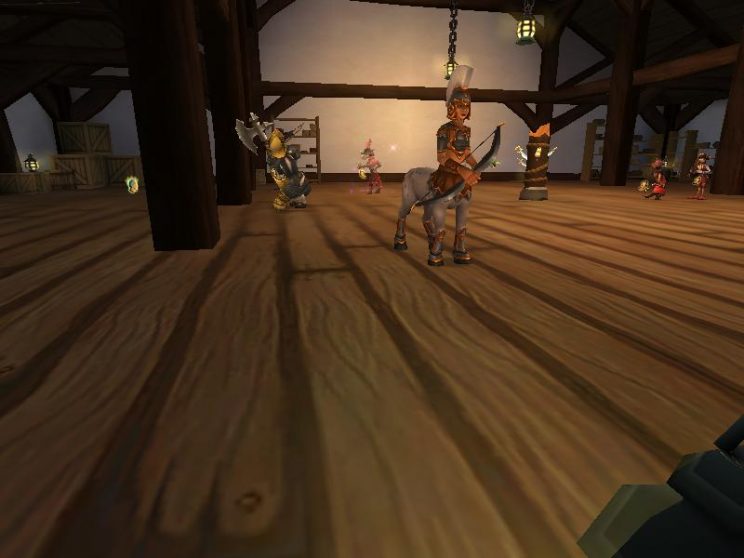
Thanks for reading! Let me know your thoughts in the comments below!

